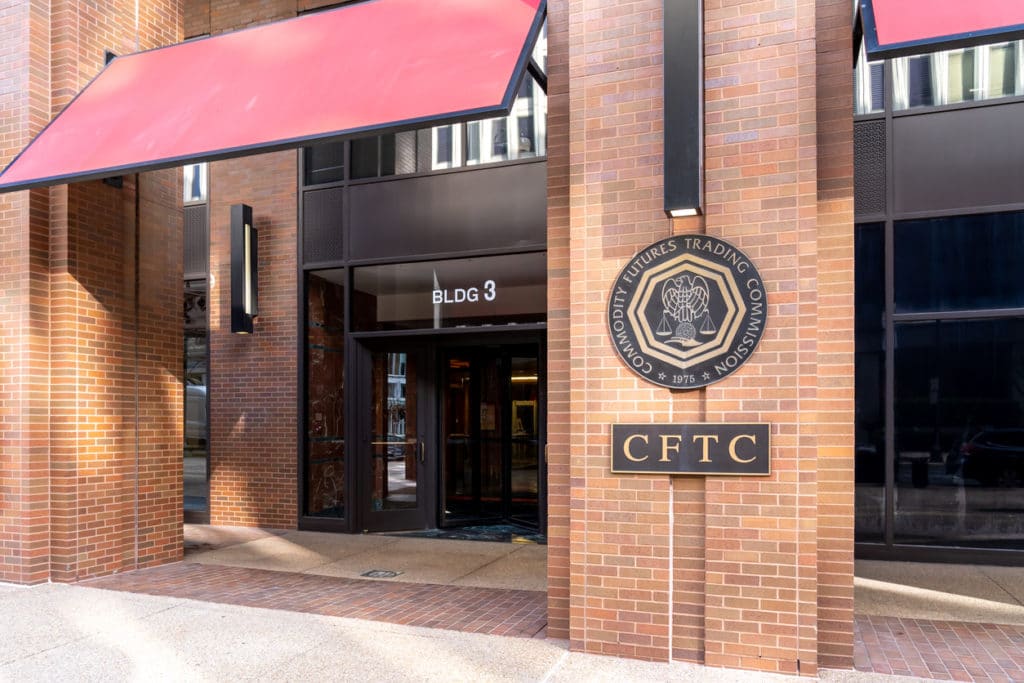On June 23, the U.S. House of Representatives passed emergency legislation to fund the Commodity Futures Trading Commission (CFTC) Whistleblower Program. The bill, an amended version of the CFTC Fund Management Act, unanimously passed in the Senate last month. Whistleblower advocates are now calling on President Biden to immediately sign the bill in order to save the whistleblower program from financial collapse.
“The CFTC Whistleblower Program is critical to effective Commodities oversight which touches every facet of our lives,” said Siri Nelson, Executive Director of the National Whistleblower Center (NWC). “The unanimous passage of the CFTC Fund Management Act demonstrates bipartisan support for whistleblowers and the importance of the CFTC program. I am grateful to the House for taking swift action for whistleblowers. President Biden should join in recognizing the value of whistleblowers by signing this bill into law right away and saving the CFTC program from disaster.”
“The Commodities whistleblower law is fast becoming a centerpiece in combating corruption in the international commodities markets,” said whistleblower attorney Stephen M. Kohn of Kohn, Kohn & Colapinto. “Bribery is rampant in markets dealing with oil, gas, coal, timber and other natural resources. The new focus of the CFTC in tackling corruption is a landmark development in policing fraud. The strong bipartisan support for the commodities whistleblower law is another breakthrough in the growing recognition of the critical role whistleblowers play in fighting corruption.”
“The leaders in Congress who supported this bill deserve the thanks of the whistleblower community,” added Kohn, who is also the Chairman of the Board of NWC. “Senators Grassley, Collins, Stabenow, Hassan, Boozman, Baldwin, and Entz and Representatives Fischbach, Khanna, Scott and Thompson all showed their commitment to supporting whistleblowers who expose corruption.”
On the House floor, Representative Ro Khanna (D-CA) voiced his strong support for the bill. He stated: “This short-term solution is by no means a replacement for the much-needed comprehensive CFTC reauthorization. It will still, though, be a positive step to ensure the CFTC can accomplish an important mission, to promote the integrity, resiliency, and vibrancy of the U.S. derivative markets.”
Representative Michelle Fischbach (R-MN) also spoke in support of the bill. “I’m proud to support today’s legislation to avoid unnecessary disruptions to [the CFTC’s] activities and needless staff furloughs,” Fischback stated. “The work in these offices, particularly the whistleblower’s office, helps to root out violations of the law, which harm individuals and undermine derivatives markets. Fraud and market manipulation can steal customer funds, distort prices, disrupt orderly trading, and settlement, and zap confidence in the fairness of our markets. Whistleblowers are a critical source of information from which the Commission protects the integrity of our commodity markets.”
Kohn, Nelson, and other whistleblower advocates had worked closely with members of Congress to pass this legislation since the financial crisis at the CFTC Whistleblower Program became urgent during the last session of Congress. In March, Kohn authored an article for JD Supra explaining how the CFTC Whistleblower Program is in a financial crisis due to its success. Since 2014, the program has awarded approximately $123 million to whistleblowers and enforcement actions associated with those awards have resulted in more than $1 billion in sanctions. However, due to a cap on the fund used to finance the program, the recent growth and success of the program has depleted its funds.
On April 30, a group of several whistleblower advocacy groups led by NWC sent a letter to the U.S. Senate Committee on Agriculture, Nutrition and Forestry urging the members to support the passage of the CFTC Fund Management Act. The letter noted that the whistleblower program’s fund is so depleted that “the CFTC has started delaying the processing of whistleblower cases due to a lack of funds and the CFTC Office of the Whistleblower might be forced to furlough staff.”
The financial crisis at the whistleblower program became even more dire when the CFTC recently began the process of determining a whistleblower award that could total over $100 million. Through the CFTC Whistleblower Program, qualified whistleblowers, individuals who voluntarily provide original information which leads to a successful enforcement action, are entitled to a monetary award of 10-30% of funds recovered by the government. All CFTC whistleblower awards are paid out of an award fund entirely financed by sanctions recovered due to whistleblower disclosures, but the cap on the fund has led to its depletion.
The amended version of the CFTC Fund Management Act passed by Congress addresses the financial crisis by creating a fund for the operations of the CFTC Office of the Whistleblower which is separate from the fund used to pay whistleblower awards. This would ensure the Office can continue to operate even if large awards deplete the award fund.
The CFTC Fund Management Act will next need to be signed by President Biden. When he introduced the bill, Senator Grassley stated “[w]e can’t allow this program to become a victim of its own success. Congress has to pass this bill now to ensure that the CFTC whistleblower program remains solvent and can continue to grow.”
